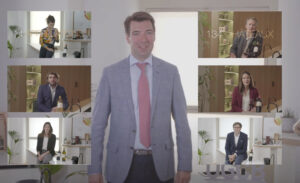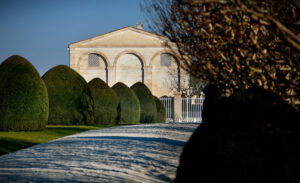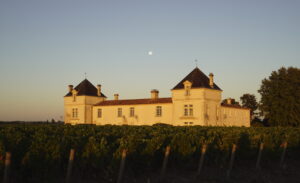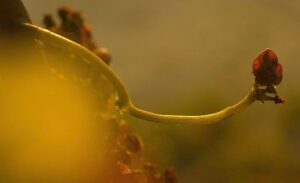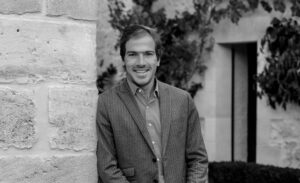Interview with Maximilian Riedel
Representing the 11th generation of the family business founded in 1756, Vintage met Maximilian J. Riedel during his visit to Bordeaux. A true goldsmith of glassware, a great wine enthusiast and followed by 525,000 followers on Instagram, he reveals the subtleties of tasting.
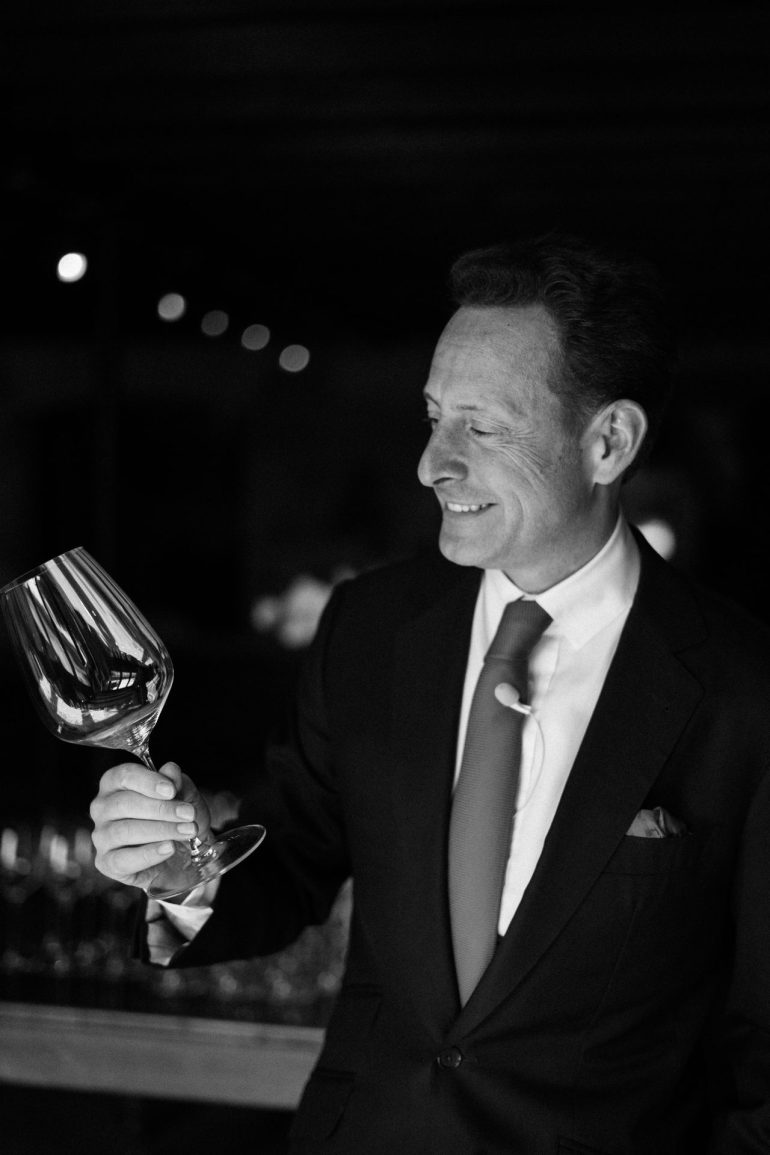
Concerning the history of Riedel, can you tell us about when you fell in love with wine?
"First of all, Riedel is a family business. We are based in Austria. We are in the 11th generation. Before then, they were glass trade. And that was in Bohemia, which is now the Czech Republic. But at the time Riedel were not really associated with wine. My family’s passion for wine emerged in the late 1960s when my grandfather Claus Riedel started to design wine glasses. Not glasses for decoration, not glasses for celebration, but serious glasses to enjoy wine at another level. This was during the Bauhaus period. So when we talk about fashion and design, Bauhaus is exactly where the Riedel concept has its place. And then of course from one generation to the next, my father discovered Bordeaux in the early 1980s. He had people that guided him in Bordeaux, such as Olivier Bernard, whom he met, I believe, for the first time in 1986. And they brought to his attention what Bordeaux is all about. Not only the regions, not only the left and right banks, but what makes Bordeaux so unique and so special. I was already there. So I was admiring my father, how he went about learning more about wine, not only from Bordeaux, but from around the world. He was always looking for people in certain wine regions and how they represented a certain grape. Those people taught him everything and we are still thankful today and we're still very close with them. For example, for Nebbiolo, Angelo Gaja was a good example. For the New World, it was definitely Michael Mondavi. So it was during the 1980s and 1990s that wine became as popular as it is now. And he was there at the right time. And I obviously had a positive experience of wine because of my father.
Every evening he went to the cellar. And whenever he opened a bottle of wine, which was a daily occurrence, it was a kind of celebration. I remember family dinners were daily, special, and under candlelight. So it was something that I will not forget. It's something which is very difficult to repeat now. But those are the times, the days that I remember that brought wine to my senses, to my appreciation. Our life was about family, partnerships and trips around the world to vineyards. And that's how I became not only a wine lover, but also I got this wine bug in me that has kept me searching for grape varieties and working with wine."
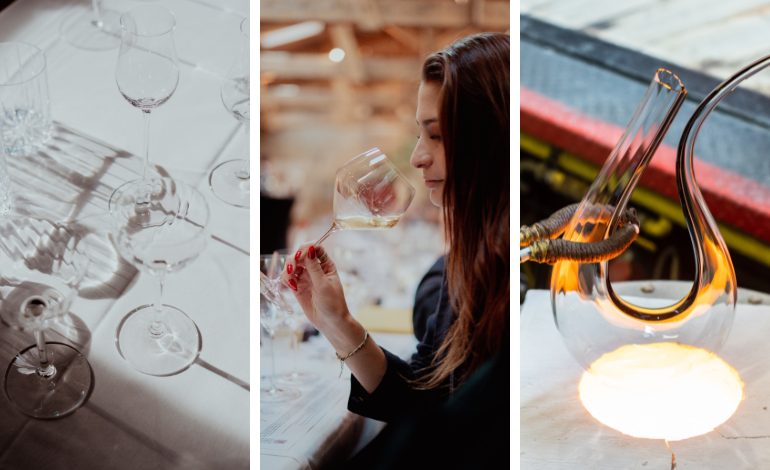
In French we say, “ça fait partie de votre ADN”.
"Exactly. That's exactly what it is. So I have it because of my father who brought it to my attention."
Do you remember the first one you tasted?
"No, of course not because it was daily (laughs). In those days my family... That's what I admire here in Bordeaux: people still invite guests to their house to have dinner at the dining table. Nowhere else in the world do people still celebrate it in this way, but this is how I grew up. All the journalists, all the winemakers, all the guests of my family came to our house and it was always about wine and food. So I don’t remember exactly which was the first wine experience I had in this sense, but I remember a very specific evening when Christian Moueix came to our house. And for the first time we talked and opened a bottle of Petrus. This was at the very beginning of my wine career. I was obviously starting with the very best, it wasn’t a bad start."
Could you please tell us more about what your cellar represents to you?
"I'm lucky enough to contemplate some very fine bottles.
So when we talk about my wine cellar, first of all, you have to understand its atmosphere. I want sandstone, like what people build their homes with in Bordeaux. So when people see my wine cellar now in my country, Austria, they come and everything is white and clear and the light is different. They're all shocked. “Wow, what a wine cellar”, because they are used to going into dark holes. And I don't think that wine needs to go into a dark hole. I'm not exposing my wine to light. But, you know, every time I open my wine cellar, it's like sunshine. I get excited because of the aura that the cellar itself has. So I'm very excited about that.
Bordeaux represents 80% of my wine cellar. The main reason for that is because that's the wine I love the most. I was brought up not by the baby bottle with milk, I was brought up with Bordeaux. Bordeaux, toujours Bordeaux.
The value of a wine cellar has become very significant because obviously if I were to buy all the wines my father and I own now, versus when we bought them, when the wines were released, we could not afford these wines anymore."
"But, you know, every time I open my wine cellar, it's like sunshine. I get excited because of the aura that the cellar itself has. So I'm very excited about that."
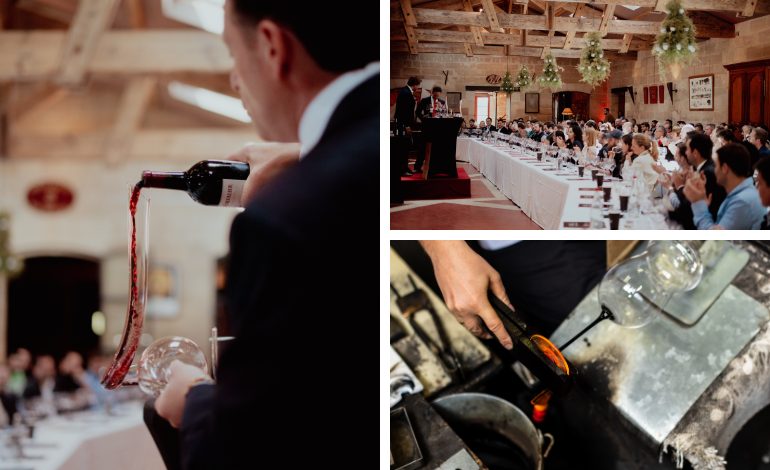
Like a kid at Christmas.
"Exactly. And sometimes I don’t go to my wine cellar to get a bottle of wine."
For the atmosphere?
"Just to browse. Some people go into their garden and they say "hello" to their plants. I say "hello" to my wine. It’s a kind of meditation. That's exactly what I mean when I talk about my wine cellar. It’s like my comfort zone. It's like yoga for me to go there. "
If you have a big occasion or something to celebrate, which bottle will you open?
"I am famous for opening big formats. I love big formats, and interestingly enough, I participate in many wine auctions. Big formats are always, in terms of bottles, the least expensive entrance to great wines, because for whatever reason, the Americans and the Chinese don’t want to buy big bottles. That's the reason why they're left over.
You have the wow effect, and what people don't understand is that the wine matures and ages much more slowly in a big format. So I love big bottles. What you need to have with big bottles is a lot of friends.
For a white, I particularly like Domaine de Chevalier, because I grew up with it... Yesterday we had an 87 white and those wines need time to develop.
Of course, there's always Yquem. There's Rieussec. And then there is a competition in my heart because Austria makes fabulous Trockenbeerenauslese. And if I host guests from around the world, obviously I want to show what my country can do.
For the reds, I naturally think of Pétrus, as I was lucky enough to harvest there with the Moueix family in 1997. It was very difficult work. So chapeau to everybody who does the vendange, to the workers who do the vendange, not only in Bordeaux. Hand-picking is something very special, and when you go through this process, I think you appreciate wine even more."
Which Riedel glasses would you recommend for tasting Bordeaux Grand Crus?
"Three generations later, there is still the issue that in Bordeaux in general, wineries like to use small glasses. What is the reason for this? I can’t tell you, I can only guess it's logistics. So I think that's the main reason because the glasses that are being used in most tasting rooms in Bordeaux are Riedel glasses, but they're not the glasses that we have developed for red Bordeaux Grand Crus. Red Bordeaux could be a blend, could be 100% Merlot, could be 100% Cabernet, but most of the time as you know it's a blend. And the blend is always a grape variety which has a very thick skin and lots of tannin. When I grew up, Bordeaux wines had about 11% alcohol, now we talk about 14% alcohol. So because of the alcohol content, the glass naturally has to grow to not show the alcohol, but to show what is the essence of wine, the fruit.
So yes we have proper glasses for Bordeaux Grand Cru Rouge and we call them the Cabernet glasses. We used to call them the Bordeaux glasses, but it confused people because you would not know whether it was for red, for white or even for Sauternes.
We have a glass for red, we have a glass for white and I can only recommend people to try it like we will do today, to taste the difference in the two glasses and to be surprised and wowed by what the proper Riedel glass can do to showcase the best of Bordeaux wines."
Thank you very much Maximilian for your time!
"Thank you and we look forward to sharing beautiful bottles together."
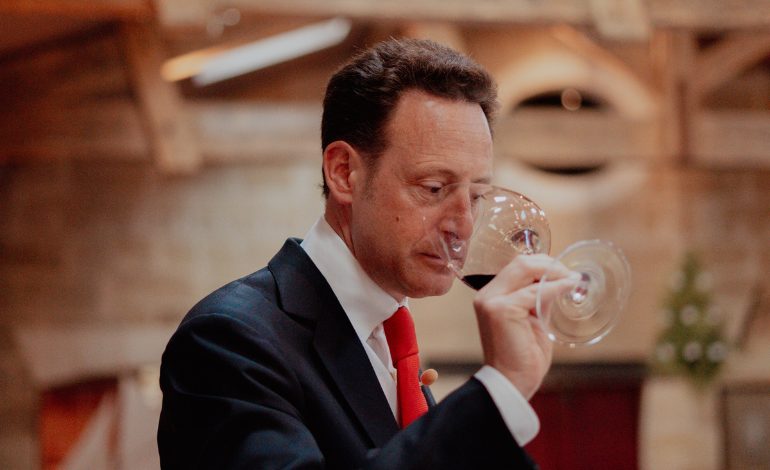
Photo credit: ©Clara Bouineau
